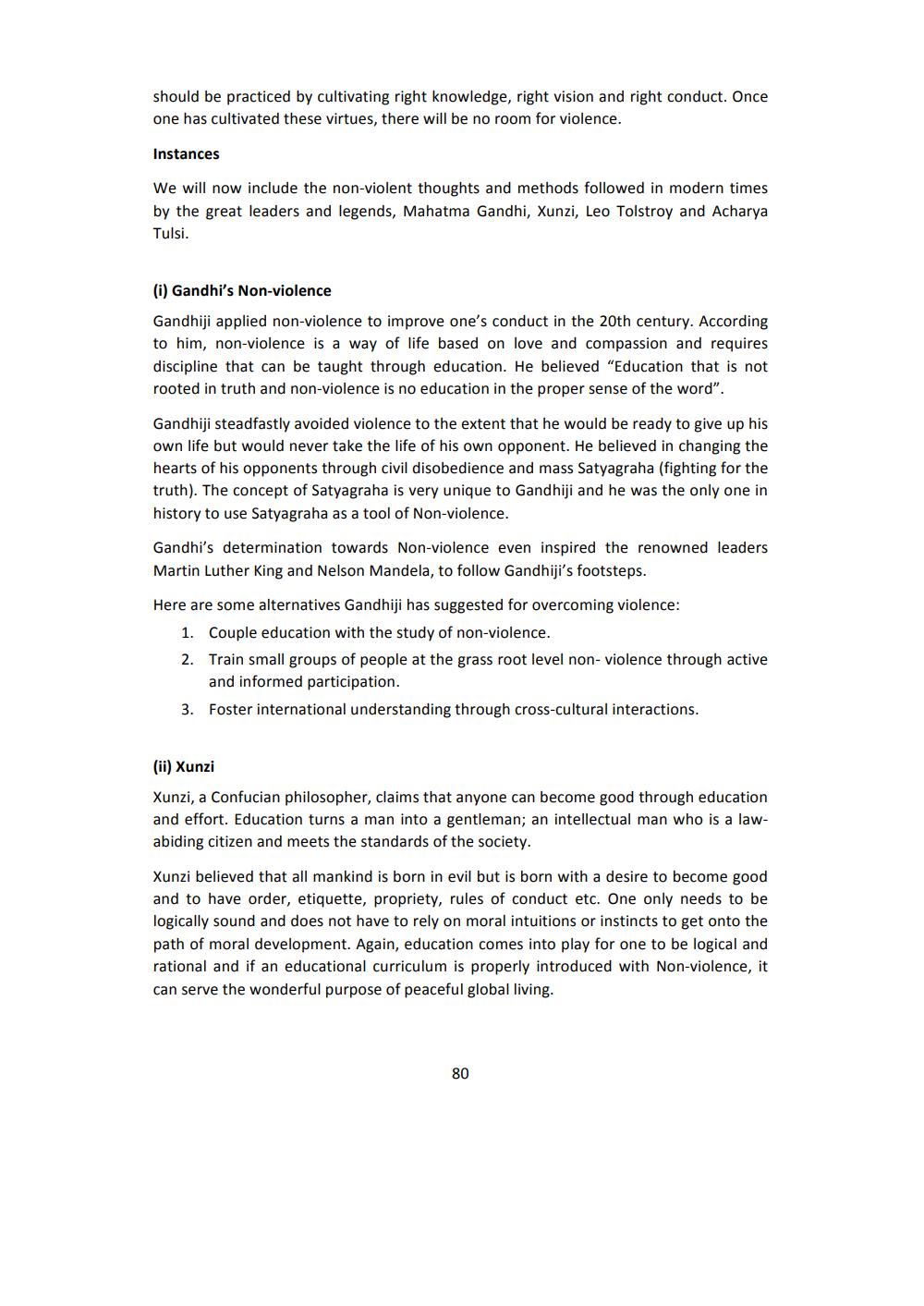________________
should be practiced by cultivating right knowledge, right vision and right conduct. Once one has cultivated these virtues, there will be no room for violence.
Instances
We will now include the non-violent thoughts and methods followed in modern times by the great leaders and legends, Mahatma Gandhi, Xunzi, Leo Tolstroy and Acharya Tulsi.
(i) Gandhi's Non-violence Gandhiji applied non-violence to improve one's conduct in the 20th century. According to him, non-violence is a way of life based on love and compassion and requires discipline that can be taught through education. He believed "Education that is not rooted in truth and non-violence is no education in the proper sense of the word".
Gandhiji steadfastly avoided violence to the extent that he would be ready to give up his own life but would never take the life of his own opponent. He believed in changing the hearts of his opponents through civil disobedience and mass Satyagraha (fighting for the truth). The concept of Satyagraha is very unique to Gandhiji and he was the only one in history to use Satyagraha as a tool of Non-violence.
Gandhi's determination towards Non-violence even inspired the renowned leaders Martin Luther King and Nelson Mandela, to follow Gandhiji's footsteps.
Here are some alternatives Gandhiji has suggested for overcoming violence:
1. Couple education with the study of non-violence. 2. Train small groups of people at the grass root level non-violence through active
and informed participation. 3. Foster international understanding through cross-cultural interactions.
(ii) Xunzi
Xunzi, a Confucian philosopher, claims that anyone can become good through education and effort. Education turns a man into a gentleman; an intellectual man who is a lawabiding citizen and meets the standards of the society.
Xunzi believed that all mankind is born in evil but is born with a desire to become good and to have order, etiquette, propriety, rules of conduct etc. One only needs to be logically sound and does not have to rely on moral intuitions or instincts to get onto the path of moral development. Again, education comes into play for one to be logical and rational and if an educational curriculum is properly introduced with Non-violence, it can serve the wonderful purpose of peaceful global living.




